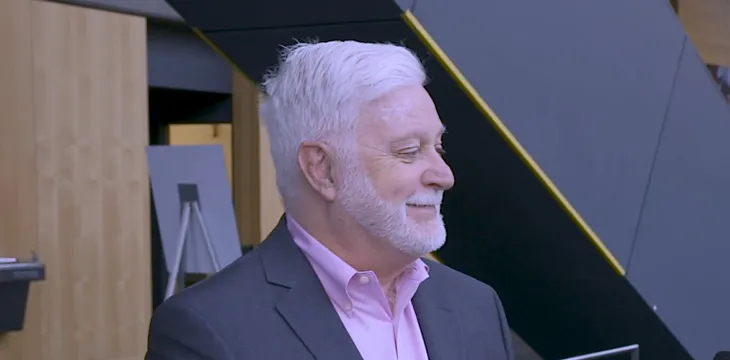|
Getting your Trinity Audio player ready...
|
The IEEE’s flagship conference, the Future Networks World Forum in Montreal, saw many thought leaders in the blockchain and IPV6 world come together to discuss the potential of the technology. Among them was the Program Director at Aptive Resources and IPv6 Lead Ralph Wallace, who had a presentation about IPv6-based 5G internet, the Internet of Things (IoT), Cloud Computing, and blockchain.
CoinGeek Backstage reporter Becky Liggero interviewed Wallace on the sidelines of the event to talk about how the U.S. task force incorporates the technology in the market and how people can start innovating with the new iteration of the internet.
So what’s the status of IPv6 in the United States? Wallace shared that one of his first assignments as a transition officer for the Internal Revenue Service (IRS) was to transition his team’s work in the federal agency to IPv6.
“They told us all: come together, form your teams, and there has to be a transition manager for every individual agency. I was the transition manager for the Internal Revenue Service, and we successfully transitioned us over to IPV6. Ninety-seven thousand workstations, 40,000 servers, three data centers, a bunch of mainframes, and we all did it securely to the point where when the pandemic hit, our people needed to take those laptops out and go back home and they logged back into the IRS over VPN in the stuff that we set up securely,” he explained. “We actually did it, and we reduced the risk. You don’t have to reinvent the wheel.”
As for moving from the internet of the 90s (IPv4) to the new iteration IPv6, Wallace said that the United States has already moved about 40%.
“What we’re trying to do is get every user connected over IPv6 so that we can enhance the mission effectiveness of every person using IPV6 and what it was designed to do,” he noted.
It’s no secret that IPv6 is a good fit for Bitcoin and blockchain, in particular, the BSV blockchain. Wallace says that since IPv6 has a flat topology, it makes it easier for a user to understand another user—which according to him is the core of Bitcoin.
In closing, Wallace has this to say:
“People are going to say, ‘I don’t want to change. I don’t want to change generations.’ We have to innovate with IPv6 now because we must grab for the gusto. We must, we must, we must say this is the right way to get to the future.”
Watch: Steve Lawrence: Creating a global patient record through BSV’s scalability

 09-18-2025
09-18-2025 





